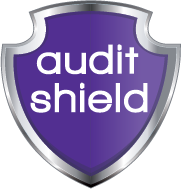
Key 2025 Changes and What They Mean for You
Despite its title, the bill does not deliver the anticipated simplification of fringe benefit tax (FBT) rules that many employers were hoping for. Instead, it focuses on a mix of measures designed to ease compliance, and clarify rules for modern working arrangements.
A key feature of the bill is a suite of migrant-friendly amendments. These proposals reduce barriers for people moving to or working temporarily in New Zealand. Among the most significant is the new definition for “non-resident visitors,” targeted at digital nomads. To qualify, individuals must meet strict criteria, including a stay of fewer than 275 days over 18 months and not undertaking work for New Zealand clients.
Income earned by qualifying non-resident visitors would generally be exempt from New Zealand income tax. Their activities would also be disregarded when assessing the tax residency of foreign companies.
The bill also introduces the Revenue Account Method (RAM) for foreign investment fund (FIF) income. This approach, available from 1 April 2024, intends to make New Zealand more attractive for new migrants and returning residents holding offshore shares. Rather than being taxed on deemed income, eligible taxpayers will be taxed on dividends and 70% of realised gains. The RAM is restricted to specific circumstances but marks a significant departure from the existing system.
To help companies attract talent, the bill includes changes to employee share scheme (ESS) rules. Unlisted companies may defer the taxing point on designated “employee deferred shares” until a liquidity event. This aims to address issues around valuation and cashflow when taxing shares.
The bill also introduces a wider change by taxing shares once employees gain an unconditional right to receive them. The timing of employer deductions is being adjusted at the same time, potentially resulting in mismatches between employee income and employer expenses.
The bill extends FBT to all gift cards, clarifies GST treatment of joint ventures, exempts income from selling excess residential electricity, and raises thresholds for cash basis taxpayers for the first time since 1999. It also confirms that software-as-a-service arrangements are not subject to non-resident contractors’ tax.
While the bill introduces important measures, the absence of wider FBT reform leaves a gap many businesses were expecting to see addressed. More comprehensive changes may still follow.



